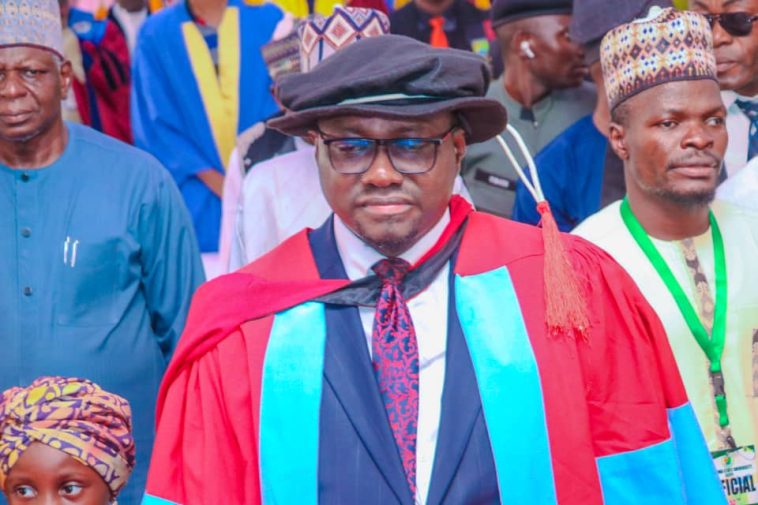By David Odama
National Legal Adviser of the ruling All Progressive Congress (APC) in Nasarawa stste, Professor Abdulkarim Kana has blamed systemic corruption for partly contributing to the failure or ineffective implementation of Nigerian laws.
Kana stated this while delivering the Nasarawa State University Keffi (NSUK) 52nd Inaugural lecture on Wednesday in Keffi local government area of the state.
It would be recalled that the topic of the lecture is “Why laws fail: Analyzing the shortcomings of Nigerian laws and the implications for justice”.
According to Kana who is also a professor of Public Law at the University, systemic corruption poses an important challenge to the effective implementation of laws in Nigeria because corruption deeply rooted in political and judicial systems biases the application of laws.
“Consequently resources intended for the police and the judicial processes are often diverted, while legal personnel can engage in practices contrary to ethics which compromises the integrity of legal results,” he said.
He explained that institutional strengthening is vital to overcoming political patronage and corruption which plague the Nigerian judiciary and law enforcement agencies thereby leading to failure of Nigerian laws.
“An independent judiciary free from political influence is crucial for upholding justice. This can be achieved by implementing robust mechanisms for the appointment and removal of judges, supported by by performance evaluations and transparent criteria.
“Furthermore investments in judicial training and capacity building are essential to equip legal practitioners with the necessary skills to navigate complex contemporary legal issues, thereby enhancing the overall integrity of the legal system,” he said.
Kana admitted that promoting transparency within the Nigerian legal system is imperative for restoring public trust and the establishment of independent anti corruption bodies that monitor judicial proceedings and law enforcement actions can deter misconduct and foster a culture of accountability.
He further pointed out that legal reforms must prioritize the allocation of resources to the judiciary, including adequate salaries for judges and legal personnel, improved infrastructure and technology integration within court systems.
“This would not only reduce susceptibility to corruption but also enhance the efficiency and credibility of legal proceedings,” he said.
Kana called on the government to adopt a proactive stance regarding the application of existing laws by careful allocation of adequate resources and a determined struggle against graft in the legal system.
In her address, Professor Sa’adatu Liman, Vice Chancellor of NSUK described the topic of the lecture as particularly relevant as it highlights the challenges and shortcomings of Nigerian legal system.
“It is therefore essential that we critically examine our laws, identify areas of improvement and work towards creating a more just and equitable society.
“I have no doubt that the presentation will provide valuable insights into the complexities of Nigerian laws and their implications for justice,” she said.






